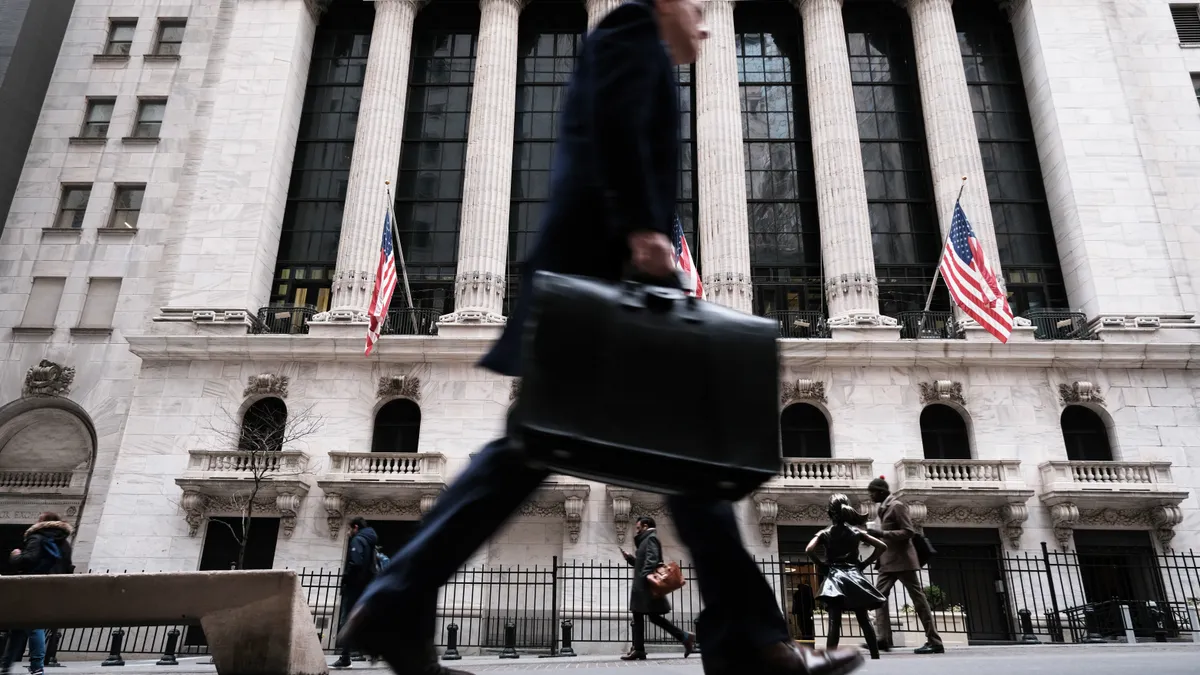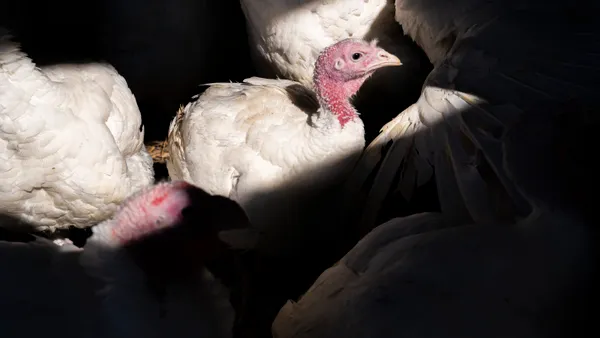Dive Brief:
- Over 100 climate groups unveiled a concerted effort to pressure JPMorgan Chase, Citigroup, and other private banks to stop financing global meat and dairy companies, saying the institutions' lending activities undermine their environmental commitments.
- An open letter led by Friends of the Earth to some of the world's largest lending institutions called to halt new financing that expands or perpetuates industrial livestock production and to add requirements that meat, dairy and feed clients disclose their climate action plans.
- The letter singles out banks' support of the world's largest meat, dairy and animal feed producers such as JBS, Tyson Foods, Cargill and Nestlé. While food companies make up a small portion of lending portfolios, climate groups say they have an outsized impact on banks' environmental footprint.
Dive Insight:
Banks’ lending activities to companies connected with livestock production have increased over the past few years, allowing what environmental groups say are some of the world's largest emitters to grow operations — and their emissions.
From 2019 to 2022, financial institutions granted 15% more credit to the largest meat, dairy, and feed corporations than the previous four years, according to research from Profundo and Feedback Global. Of the $134 billion in loans and underwriting to the meat and dairy sectors, more than half are tied to Bank of America, Citigroup and JPMorgan Chase.
The climate groups' letter comes as the world's largest meat producer JBS seeks a listing on the New York Stock Exchange, a move heavily criticized by environmentalists who say it would allow the company to easily access more capital. It also comes ahead of Climate Week in New York City, where industry leaders, environmental organizations and government officials are set to push for climate action.
“Industrial livestock companies are incompatible with a safe future for our planet, so it is time for banks and investors to turn off the taps and stop providing the finance that is enabling them to grow," Martin Bowman, senior policy and campaigns manager at Feedback Global, said in a statement.
Food systems make up about one-third of global greenhouse gas emissions, with livestock production responsible for half of that total. Livestock emissions have declined in recent years, in part because of smaller cattle herd numbers and other financial constraints that make it difficult for ranchers to expand production.
However, to meet the goals of the Paris Agreement to keep warming within 1.5 degrees Celsius, emissions from livestock production must drop 61% by 2036, according to a study from Harvard University and three other schools.











